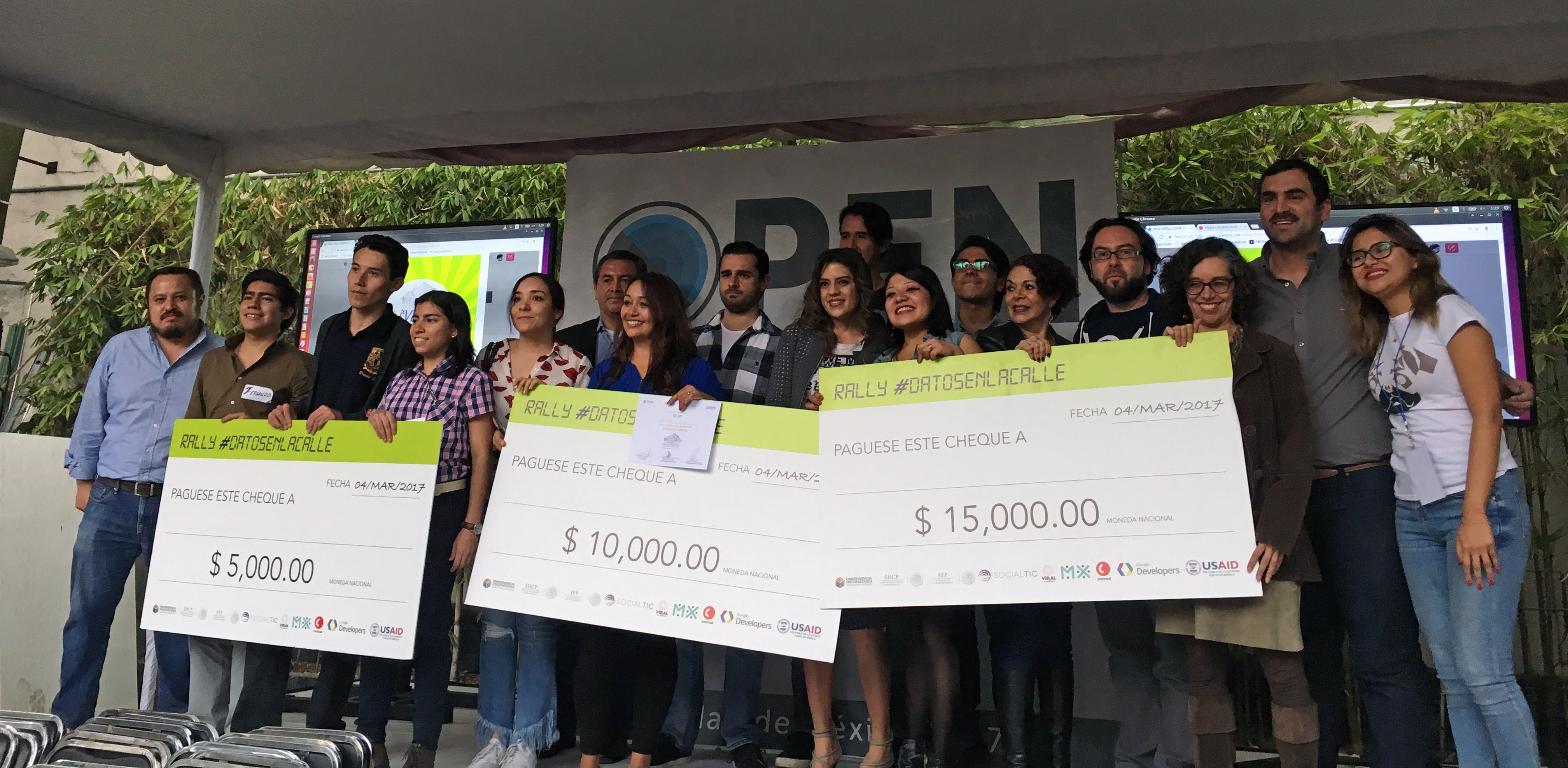Helping Citizens and Journalists in Mexico Use Data to Fight Corruption
Data has the power to substantiate facts and reveal improper procedures or corrupt practices. The latter are all too common in Mexico, where bribery is widespread in the country's judiciary system, law enforcement, and business registration processes. By harnessing data to expose corruption, citizens can call out unethical practices at all levels and areas of government and fight for more transparent, open government practices.
An Abt-managed program in Mexico is harnessing the power of data and public records to give citizens and journalists the tools they need to advocate for more open, less corrupt government.
The Abt-managed, USAID Mexico Economic Policy Program (MEPP) and its Mexican partners are leading open government initiatives to give citizens the knowledge and tools necessary to create change. In early 2017, these efforts have included the Data in the Streets Rally and a new data journalism certificate.
Verifying Progress on Public Works Projects
The Mexican Institute for Competitiveness (IMCO) estimates that 20 to 30 percent of Mexico’s public works budget is lost to corruption. To encourage citizens to expose misdoings, MEPP and Social Tic collaborated with the Ministry of Finance (SHCP) to organize the Data in the Streets Rally or #DatosenlaCalle on March 4, 2017.
In the days leading up to the rally, MEPP tasked “Héroes Ciudadanos,” or Citizen Heroes, with monitoring the progress of local public works projects on the Ministry’s budget transparency website — an interactive data platform recently transformed with MEPP technical assistance.

For #DatosenlaCalle, “Citizen Heroes” took to the streets of Mexico to verify if public works projects actually matched their reported progress on the SHCP website — a campaign driven by MEPP and Social Tic to encourage citizens to call out corruption and keep the government accountable.
Photo credit: Natalia Jardon, Abt Global Citizens took to the streets to see if the status of those public works projects matched the status reported on the website, reported progress by uploading pictures via Twitter and Facebook using the hashtag #DatosenlaCalle. Judges then chose the best picture from more than 90 participants on 30 teams across 15 Mexican states and announced the three winning teams on March 4, International Open Data Day. The online campaign reached over 85,000 people throughout the week.
Training Journalists in Data Science
Journalists are well-positioned to use data science to strengthen their reporting, reinforce open government and amplify their findings. In early 2017, MEPP grantee Data Civica launched a data journalism certification course, which covers key areas of data science and analysis to help reporters carry out open government investigations on public sector accountability.
Demand for the course was high, with 120 applications from 54 different media companies, as well as members of civil society, state and federal governments, universities, and private consultancies. The final class of 30 participants represents leading Mexican news outlets, including La Jornada, CNN Expansión, Reforma, Milenio, El Universal, Animal Político, Vice, Noticias MVS, Proceso, and El Financiero. Following the eight-week course, participating journalists will publish an original piece informed by their newfound data journalism tactics.
